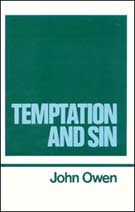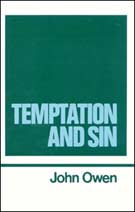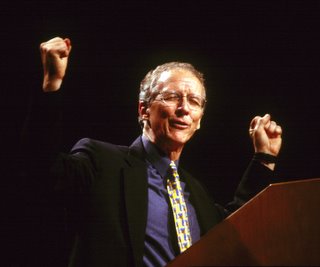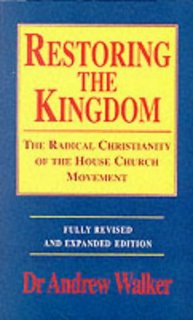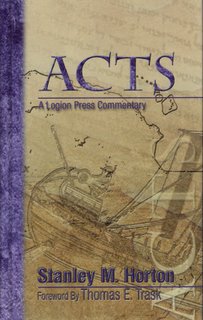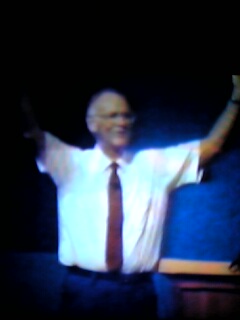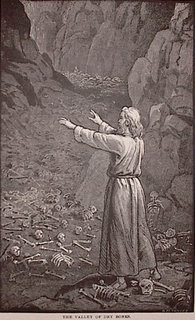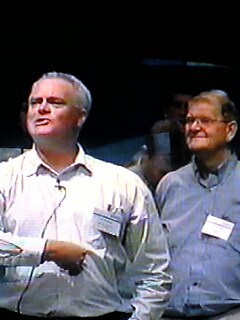 The Mobile Pastor, the Young Men and the Double Portion.
The Mobile Pastor, the Young Men and the Double Portion.When I was working last night, I got to thinking about the Pastor/Teacher. I have written down a few thoughts on the role of the
Apostle and the
Prophet previously, and it hit me how vital it is that the
5-fold Ascension Gifts must co-exist. Any of them have the ability to halt or cause problems for the advance of the Kingdom of God. Just as similarly, I was struck by how vital it is that we see these ministries in the context of church planting. If we do not, it is guaranteed that controversy will creep in and we will begin arguing about their existance today.
What Ern Baxter and Terry Virgo Saw ...This particular line of thought concerning the Pastor/Teacher was inspired to me by two prophecies. One was given to Ern and one to Terry. In the extremely key interviews that Ern Baxter gave just before he died entitled "Life on Wings" (
the transcript is available online here), Ern was being asked about how he developed a keen concern in disciplining and shepherding. He said;
"I had had an experience up in the mountains of Australia with a group of about 40 pastors in rather an intimate discussion session. And it had impacted me greatly – it had reduced me to tears because it was almost like God had invaded my rational flow with a kind of transcendental invasion and I shared it with the men and women and we were all weeping because I was seeing something in the Spirit (at least that’s my way of presenting it) where I thought of a number of men who were apostolic and prophetic in their ministries who were sitting on top of church works (some of which were sizable)
and were really keeping eldership from emerging.
And they needed to come off the top of those things and do their apostolic/prophetic/ evangelistic work –
because those three are mobile people. And because they were sitting on top of these, in some cases, sizable churches they were
actually keeping the government of God from evolving in eldership. And that was much of what I said at Montreal. It was well received and there was a considerable response from men to whom the message spoke. And about 300 men responded – that was a word to them. That they needed to reconsider who they were and what they were doing and what they should do".
In his book "No Well Worn Paths", Terry shared two accounts where it seemed that this issue was on the Lord's heart - and I see an intense parallel between these accounts and what Ern saw. When Terry was pastoring his church in Seaford, Alex Buchanan came to their meetings and began to prophesy; "Young men prepare yourselves for ministry, for my hand is increasingly upon my servant ... here he will grow less and less and you will grow more and more".
The second account came when Terry was considering going to the USA to minister in 1993. It was a prophecy given by Robyn Lowe and she said that she had seen a vision of Terry with a machete in hand, striding up a hill and cutting through undergrowth. Terry's temptation would be to look back to ensure that all was okay behind - but God urged him through the vision not to do that but to be fully assured that as he moved forward in obedience, so behind him and fanning out in ever increasing circles would be workers and rows of people. The prophetic word ended; "
You will not be forsaking them by going forward, rather you will be helping, as it is important that you clear more ground so that in turn, all can move forward".
What Does That Mean?I want to suggest that I think that pastors/teachers should be far quicker and more ready to relinquish their office in place of a younger man within their midsts if God so speaks. I realise that could come across as incredibly arrogant (who do I think I am?!) or stupid maybe. So I want to unpack the enormous benefit for the pastor/teacher taking that step and the greater church if they can do this. Consider this anonymous quote that I found in an old Restoration magazine;
"Everyone who has the capacity for responsibility will be given responsibility and as their capacity increases - so will their sphere of ministry".
So ...
A Mobile Pastor/Teacher will ...1. Benefit Himself.If a pastor/teacher can hold this mobile state of mind and be ready at a moments notice to pass on his office to a younger man, I believe it will keep him
humble before God. The dangerous problem with the traditional ecclesiastical position of a "one senior pastor and congregation" mentality is that pastors can become extremely protective of both their ministry positions and their pulpits. While there is a valid place for the senior pastor acting protectively towards his church and not allowing error, the far more serious problem I think is this - that their identity becomes wrapped up in their position. If the pastor is prepared to go if God says so, I think an attitude of humility will be fostered, because he will realise that his identity is actually hid with Christ on high.
A mobile state of mind will keep him vastly
dependent on God. Again in the classic "one senior pastor and congregation" picture, there can be a great deal of pressure to 'people please'. I have heard story after story from various friends of mine who are in the ministry, who have had unspeakable things said to them by angry pew members when they have tried to initiate change! There could be a very real temptation to not preach certain sermons or not initiate certain changes for fear that the congregation will rebel - or even worse, leave. To keep a mobile mindset will free this. He will realise that the ministry is not a democracy - elected in by the congregation, who then have the power to move him - but that he is there called by God.
And finally a mobile mindset will keep him
fresh to God. If you as a pastor are constantly on the lookout for younger men who may carry a "double portion" of your anointing, then you will find it very difficult to rest and build here three tabernacles. You will know and trust that if God does move you in, it is NOT to retirement! But to more exciting challenges and changes. I was profoundly touched by a comment that Terry Virgo made at Stoneleigh Bible Week 2001 - his final address. He was mentioning church planting and he urged older couples among the thousands to seriously think about moving to a new church plant, and the enormous blessing that their presence and wisdom in a church plant will bring to the younger pastor. I don't think we are EVER meant to think of retirement - or indeed to become overly obsessed with heaven. Surely heaven and the thought of it, is meant to motivate us and release us to more daring living - not a morbid escapism.
2. Benefit Others (Jerusalem, Judea and the Nations!)If a pastor can hold this incredible mobile mindset then he will
free the way for Elisha. It is incredibly moving to read the final accounts of the time that Elijah and Elisha spent together before Elijah was taken to heaven. Elisha's final request was "a double portion". I wonder how easy we find it to accept the fact that our successors are meant to do a better job than we did? Hebrews 11:39 says of the giants of the faith; "And all these, though commended through their faith,
did not receive what was promised". Again and again through that wonderful passage, it makes reference to this mobile context. (v8) Of Abraham; "he went out not knowing where he was going". (v13) "
These died in faith, not having received the things promised but having seen them and greeted them from afar". Can we achieve this? To be so thankful for the prophecies and promises that God has given, but to know that maybe it will be the Elisha's who follow who see this come to pass.
A mobile-obsessed pastor will
keep the church fresh and dependent on God. I am sure that no one would deny that "change" is not a favourite subject in todays church! Yet if the pastor/teacher fathers them properly and prepares them for that inevitable time when God will indeed move him on, and bring in an Elisha-figure who will take them - the people of God - yet further, I believe that they will begin to trust this and accept this. In his now-out-of-print book, "What on Earth IS This Kingdom?" Gerald Coates writes; "Many settlers were once pioneers and others still have a spark of pioneering spirit left but their faith and corporate lives are so old they are creaking, and any spark of life they have is reserved for simply helping them to carry on".
Addressing the nation in 1899, Theodore Roosevelt said; "
Far better it is, to dare mighty things, to win glorious triumphs, even though checkered by failure, than to take rank with those poor spirits who neither enjoy much or suffer much, because they live in the great twilight that knows neither victory or defeat".
And finally a pastor/teacher with a mobile mindset will
advance the mission of taking the gospel to the nations, and hasten the Lord's return. How so? Because he will be then freed to take his experience to other churches, to younger pastors who can thrive on having him behind them. It is no good a pastor/teacher allowing a younger man to take his place, and then him taking a back seat in the church! The whole context of mobility that both Ern and Terry saw, was that the pastor/teacher is stepping aside to allow others to surge forward. But then there are new paths to clear, new challenges to meet and new missions to embark on.
I must highly recommend
Mark Heath's post concerning John Piper and his views on church planting. Piper sees four key reasons as to why we
MUST plant. The fourth is; "Breaking free from the risk-free comfort of long-standing patterns of church life is a good thing. It’s good for your faith to be tested. It is good to take risks". Piper of course does not just want any old church plant. He desires; "
God-centered, Christ-exalting, Bible-saturated, missions-mobilizing, justice-pursuing churches" and Mark adds; "Spirit-filled". Mark makes the vital point that we must not get threatened by church planting - there is a huge world out there to save!
Newfrontiers - the family of churches I am involved with - frequently refer to the prophecy that John Kpipi gave at Stoneleigh 1999 speaking of a thousand churches. I don't know if they will ever see these 1000 churches in the United Kingdom if their churches are marked by pastor/teachers who jealously guard their pulpits and rarely move anywhere. Yet if they can grasp this mobile context, (and I know they already are) 1000 churches suddenly becomes a small thing, especially if God will restore His house.
A few Caveats ...I think that this mobile context and indeed obsession can only occur safely and securely in the context of
loving fatherly apostolic ministry in the churches concerned. It is the apostolic fathers who are best equipped to spy out and see younger potential Elisha figures and it is the apostolic father figures who know best where the senior pastor who desires to move on can be best placed. I will never forget being at Brighton a few years ago and seeing a Newfrontiers pastor called John Wilthew being prayed for. Although I had seen him sit on a couple of Stoneleigh platforms, I didn't know a great deal about him. I discovered later that he has moved to loads of Newfrontiers churches and been involved in supporting the pastors there. I think he was at Church of Christ the King, Brighton - then at New Community Church, Sidcup - and now I haven't got a clue where he has gone! That thrills me - because it demonstrates what I am trying to argue.
It is not always God's will I am sure that every senior pastor should quickly move on as soon as possible! I do believe that it is key that some strategic churches should indeed have pastors with a long ministry. But Dave Holden reminded us at Brighton 2003 that
EVEN IF they do stay - they should still have a mindset of "going"!
It would be remiss of me to end this without mentioning the obvious and celebrated case where a senior pastor has handed on his very successful ministry to a younger man. This is of course C J Mahaney handing over the leadership of Covenant Life Church.
The whole weekend where this took place is available on DVD, and although I haven't seen it to recommend it, it could be a useful resource for anyone requiring further persuasion on these things. Just as similarly Peter Brookes handed over leadership of Church of Christ the King, Brighton and moved to a new apostolic work in Australia and a younger man will now be taking over there. So it can happen! And I believe the more it does, the further the advance of God's Kingdom.



